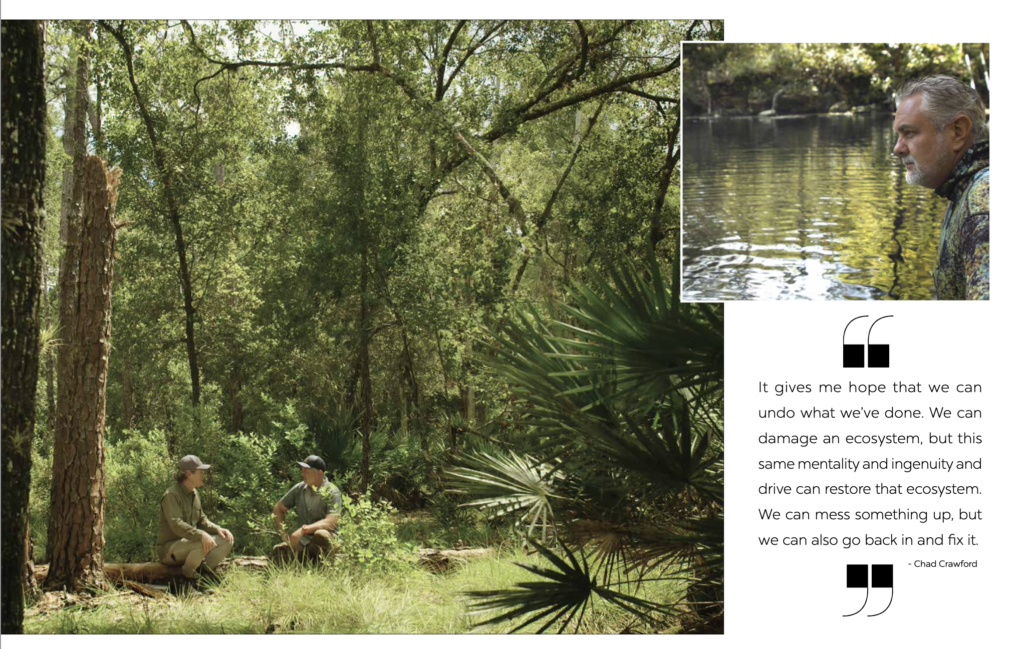Safeguarding What We Love About Florida
By Christy Swift
Photography By Pete Gill, Killian Gilroy and Frazier Nivens
What do you love best about Florida? Is it the clear water and pristine beaches? The bird and wildlife sightings in your neighborhood? The fresh, salt-tinged breeze whispering through the palms? There are so many things to love, it’s hard to choose. But rampant growth and development are putting all of them at risk.
“Florida is, in my very biased opinion as a sixth generation Floridian, the best place to live and work and raise a family,” says Traci Deen, environmental attorney and President and CEO of Conservation Florida. “I understand that people want to live here because I want to live here, too. But what we save and what we pave over the next decade is going to determine the future of our state.”
Protecting the Florida we all love is her organization’s mission. That’s why when Chad Crawford approached Traci with an idea for a TV show called “Protect Our Paradise,” she was all in. With help from the Bellini family, who underwrote a generous grant, Conservation Florida was able to partner with Crawford Entertainment to create a stunning six-part series that explores the wild beauty of Florida and the efforts being taken to protect it.
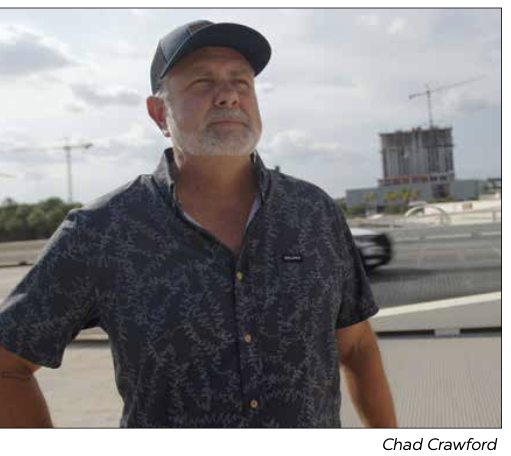
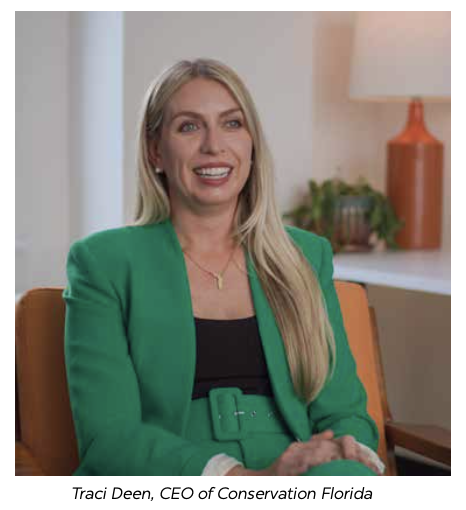
OUR CORRIDOR focuses on the hidden wonders and current challenges of the 18 million acre Florida Wildlife Corridor and the fight for its conservation.
OUR WATER shines a light on the beauty of Florida’s bodies of water and the efforts to protect water quality in our state.
OUR LAND journeys through all the ways land is used in Florida, from timberlands to military installations and even takes viewers along on a prescribed burn.
OUR GROWTH takes a deep dive into the Sunshine State’s population growth and how its impact is changing wild Florida.
OUR COAST opens viewers’ eyes to what’s happening on our coastlines, including efforts to restore plant life, water quality, and coral reefs.
OUR WILDLIFE focuses on iconic Florida species that are being threatened by habitat loss and what we can do to coexist in harmony with these extraordinary creatures.
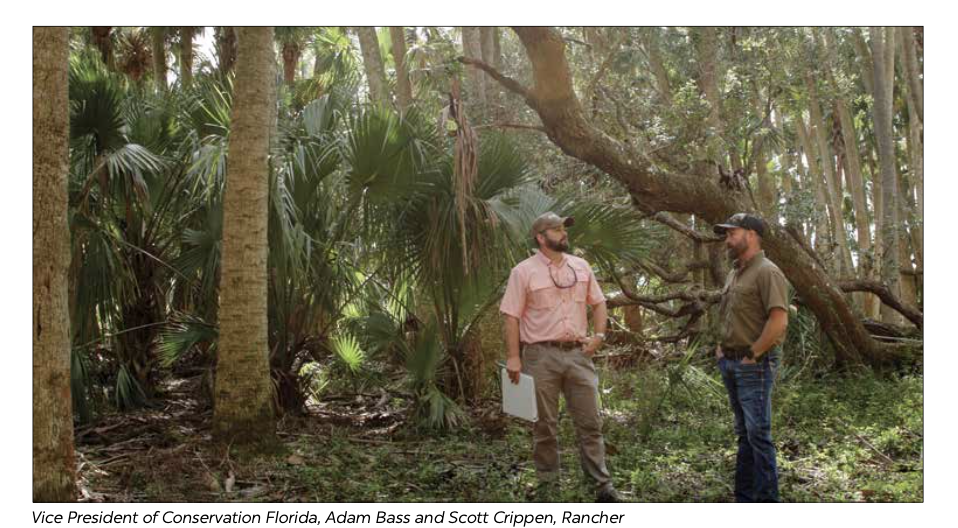
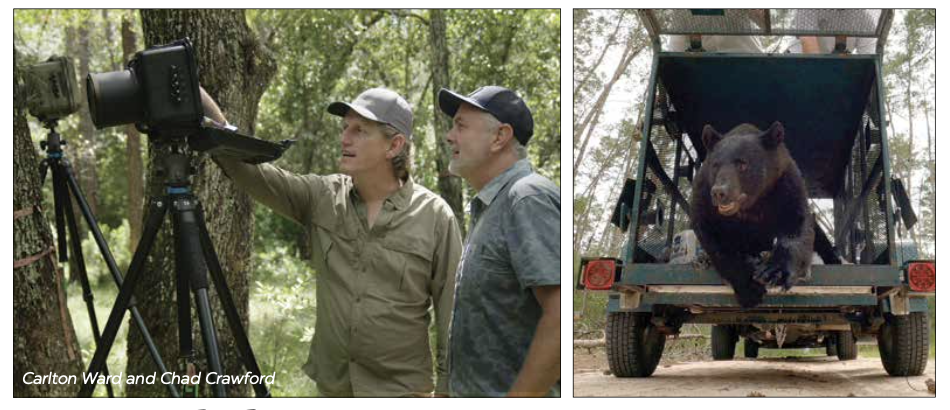
All six episodes are currently available for free via the Discover Florida Channel app on Roku, AppleTV, AmazonFire, Xbox, Samsung, or LG or at www. discoverfloridachannel.com.
The host of the show is Chad Crawford, a third generation Floridian who has made a life and career out of teaching others how to live to the max in this state. He produced and hosted 13 seasons of “How to Do Florida” (also available on the Discover Florida Channel) where viewers can tag along with him on Florida-based adventures like shrimping, surfing, and scuba diving. He also created and hosted “The Outsiders Club,” a show about teaching kids how to enjoy the Florida outdoors, and “My Florida Yard,” where his team “flips” a yard to Florida-friendly in eight hours, educating homeowners along the way.
“Protect Our Paradise” is the natural culmination of that trajectory, Chad explains: “A way to wrap all this together into a much sharper spear and point it at much bigger environmental issues, talking to people on the front lines and trying to address and educate people in our state about what we’re up against.”
There was no shortage of adventure in the two years it took to create the series, but Chad has had some stand-out moments. “Carlton Ward had us meet him in the middle of nowhere. Getting to him was insane,” Chad says, referring to the National Geographic Society photographer and co-founder of the Florida Wildlife Corridor project. (You can see Chad drive his truck across an honest-to- goodness creek in the “Our Corridor” episode). Then there’s the episode “Our Wildlife,” where he and FWC biologist Mike Orlando trap a black bear. “The thing lunges at you with this bluff charge—it freaked me out,” Chad recalls with a chuckle.
Creating the show was fun but also emotionally draining at times, such as in the “Our Coast” episode when Mike Goldberg, founder of I.Care (Islamorada Conservation and Restoration Education), explained that over 95% of the coral in the Keys is gone. Literally. Five-hundred-year old coral formations Goldberg dove in his youth are now dead.
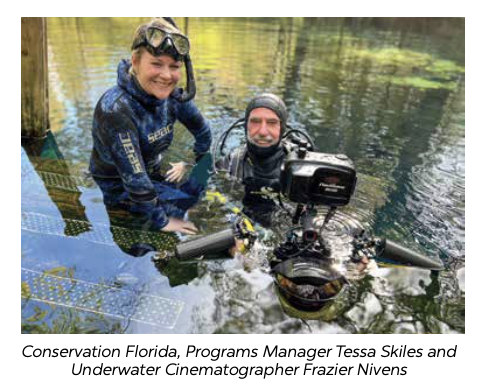
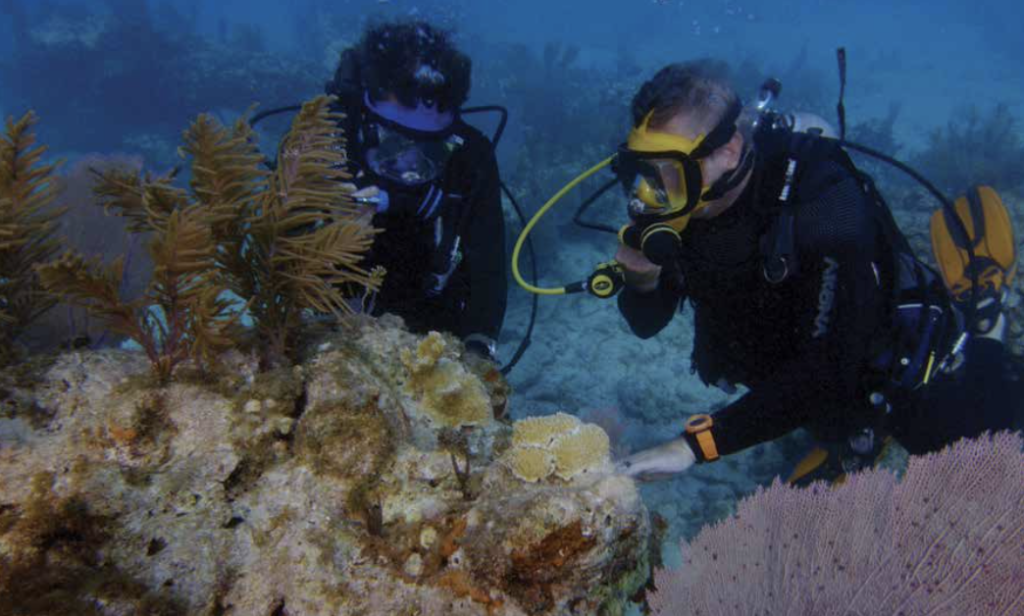
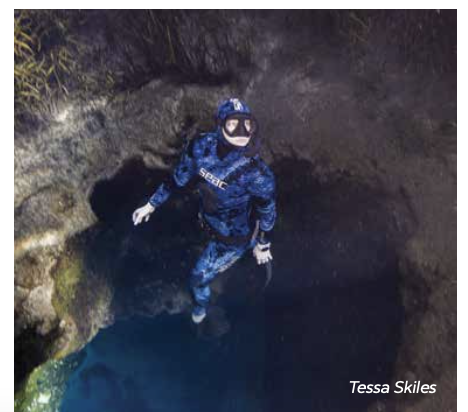
But the show doesn’t just focus on the bad stuff. It highlights the good work being done by individuals and organizations across the state, including I.Care’s program that trains recreational scuba divers to graft pieces of lab-grown coral onto underwater structures. In another segment of the episode, twin brothers Kyle and Keith Rossin are restoring mangroves in the concrete jungles of West Palm Beach.
“It gives me hope that we can undo what we’ve done,” Chad says. “We can damage an ecosystem, but this same mentality and ingenuity and drive can restore that ecosystem. We can mess something up, but we can also go back in and fix it.”„
The show was Crawford Entertainment senior producer Katie Schroeder’s directorial debut. Being a transplant to Florida gave her a unique perspective. “I definitely view Florida in a different way having directed/produced the show, and as I’m raising my own family here now, I feel myself trying to imprint my new love of Florida into them. All in all, I’m just so proud of what we accomplished with the small team we had to make this series,” she says.
Traci said she’s extremely proud of the show as well. She hopes the show will reach people who normally wouldn’t be aware of these topics, and that it might inspire hope and action. “We put our hearts and souls and blood and sweat and tears into every single episode. All six of them are really powerful because they are all telling a different aspect of the same story, which is that Florida is unique and special and paradise, and we’re losing her.”
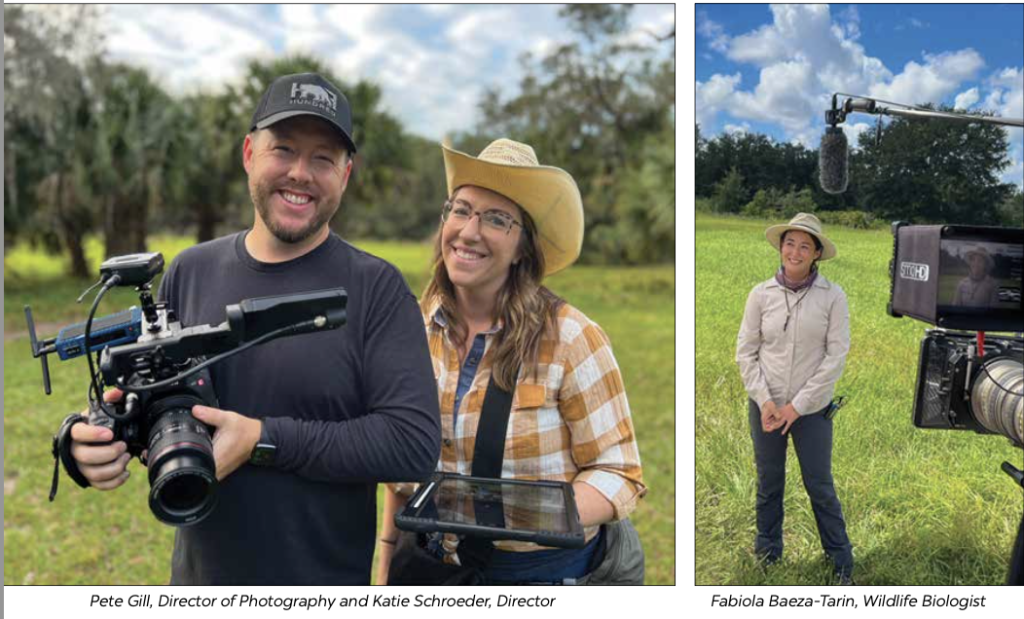
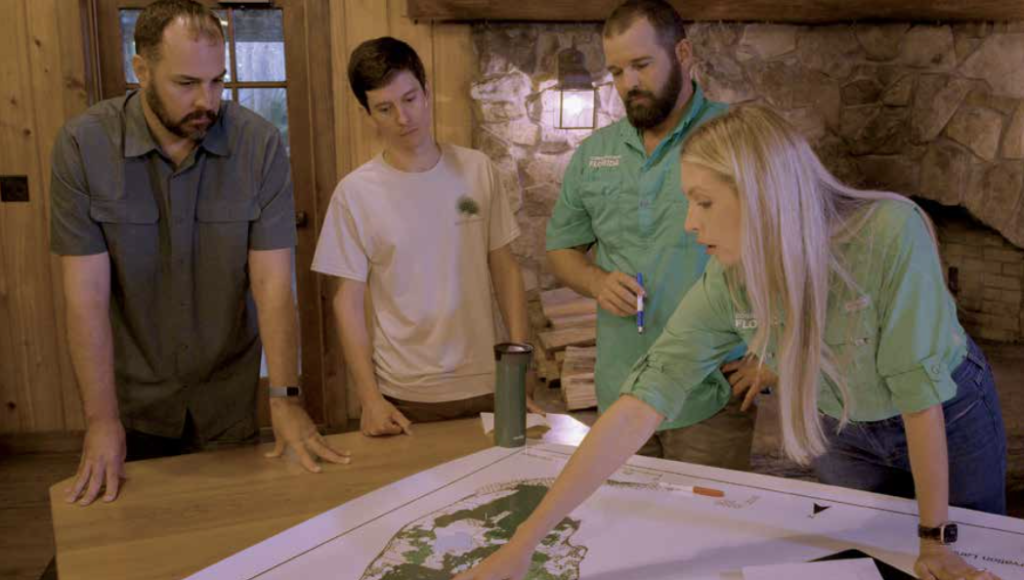
Why are we losing her? A common denominator is unchecked growth and development. “The environmental problems are connected to not only how much we’re growing, but how we’re growing,” Chad says. “It’s going to be the great reconciliation over the next 20 years: Our growth—how do we do it to where it doesn’t destroy the Florida that we love?”
Can it even be done? The boots on the ground say yes, if we take action now. Part of that involves Conservation Florida’s work as a land trust. For landowners who are thinking about selling their property, Traci wants them to know that they have options other than taking a check from a developer.
Conservation is one option, and it’s competitive,” she explains. (Part of Conservation Florida’s mission is to secure funds to compensate landowners, especially those in the Corridor). “There are many paths to protection, including conservation easements. Those protect the conservation values of the property but allow working lands to continue working and to continue to be passed on to the next generation or sold, but protected.” Learn more about land conservancy and the Florida Wildlife Corridor at www.conservationfla.org.
Those without acres of property can play a role, too. “I am a big believer in finding what calls to your heart and soul,” Traci says. “If it’s water, if it’s wildlife, if it’s outdoor recreation, find a nonprofit group that you can volunteer with, that you can support with a monthly donation, that you can be an ambassador for. Talk about what they do and why it’s important to you. Those are very real ways to get involved overnight.”
“There’s a reason the word ‘our’ is in the title,” Chad says. “I want people to feel ownership of where they live. This is our Florida. It’s not the government’s. It’s not anybody else’s. I want people to feel the weight of that.”
